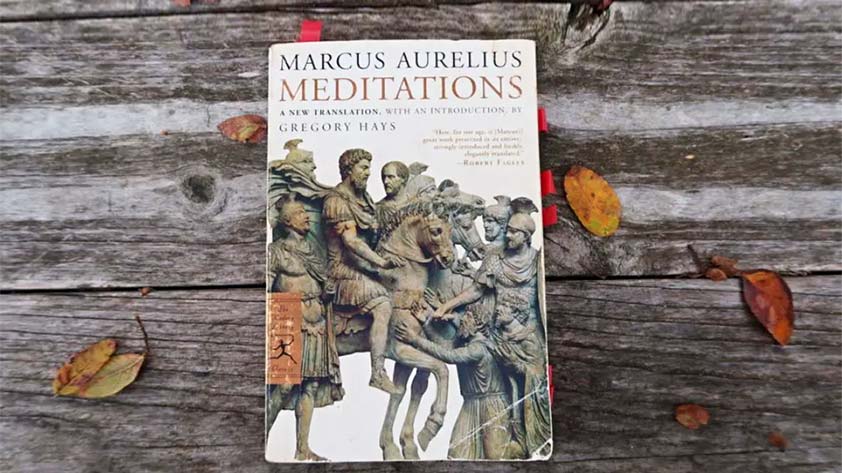
Title: Marcus Aurelius – Meditations
Author: Marcus Aurelius
Year: 2006
Publisher: Penguin Books Ltd
“If you want to gain control of pain, open up this blessed book and enter deep within it. Its wealth of philosophy will bring you to see with ease all the future, the present, and the past, and you will see that joy and distress have no more power than smoke.” – A Greek reader.
“Meditations” was Marcus Aurelius’ journal; it is a miracle it survived and a blessing that it was found. This book reflects Marcus’ mindset and approaches to life. A man with lofty values who always wanted the best for his community; without falling into negative and dark emotions like anger, resentment and fake and poisonous fame.
In this article, I will share my insights about each section of the book and quotes of what you’ll find. I hope you like it, and I encourage you to keep learning more about one of the greatest thinkers in history.
Book I
This is a book of thanks to his family, friends, the gods and life itself. In this part of “Meditations”, we look at the reason why he was as he was. Family and tutors were full of values and grace, so much so that they raised the best king of Rome and a key philosopher of Stoicism.
“Love of family, love of truth, love of justice.”
Book II
In this book, he thanks life and tries to change a negative point of view with a positive one to be two steps ahead of the day.
“Self-harm, my soul, you are doing self-harm; and you will have no more opportunity for self-respect.”
Book III
Here, he talks about his position in the world; how to deal with the judgement of others; their poison, and his faith in god and the divine.
“Body, soul, mind.”
Book IV
This part of “Meditations” talks about his position in the world, against others, against fame, the mundaneness of the body, and that the beautiful does not need more than itself to survive.
“Remove the judgment, and you have removed the thought.”
Book V
This covers his virtues, limitations and impulses and how to stay firm and “virtuous” before others. He talks about his faults and how to handle them. This is my favourite book.
“What sort of soul do I have after all?”
Book VI
He talks about his nature, this time he delves into community, what it’s like to relate to others and the role that each one fulfils. Some help, and others don’t, but time puts everyone in their place.
“The best revenge is not to be like your enemy.”
Book VII
Living with honour and values, without breaking before the demands of the other. The rose is beautiful, and gold has value, even if it is not recognized or praised. Live based on good, beyond the selfishness of the world.
“Do not let the future trouble you.”
Book VIII
Here we learn that we were born in society, therefore, either we learn to tolerate, or we learn to teach. We cannot be indifferent to others, that would be going against our nature. This is what this book is about – learning to live in society and manage oneself in it.
“Constantly test your mental impressions.”
Book IX
Why do you believe the liar? Why do you trust the infidel? They only do what they know how to do. He talks about community and death, which, like all changes and natural processes, must be accepted with grace.
“Injustice is sin. When universal.”
Book X
Here, society and the community are reiterated on how we should live in it, and he speaks of the soul. Don’t judge, don’t criticize, don’t think, you won’t open your mouth until you’ve seen yourself in the mirror, until you know what you have locked up in your own soul. It talks about the values that one should follow, adopt and promote.
“No more roundabout discussion of what makes a good man. Be one!”
Book XI
This one covers the soul, its purity, its brightness, how to use it for the common good, and rules to follow when we fall into our impulses and do not listen to reason.
“And the heart within me laughed.”
Book XII
This is a commentary on the soul, on nature, and about always being grateful to the gods. He mentions death and the end of all activity (living), everything has an end, and if the world wants life to end in 3 acts and not 5, it will be for a reason. Let’s not talk about pleasure and pain when we don’t accept death.
“If it is not right, don’t do it: if it is not true, don’t say it.”
I hope you enjoyed this review as much as I did writing it. “Meditations” has become one of my favourite books, and I encourage you to keep learning about Marcus, the Stoic life, and these amazing philosophers and characters of history.









